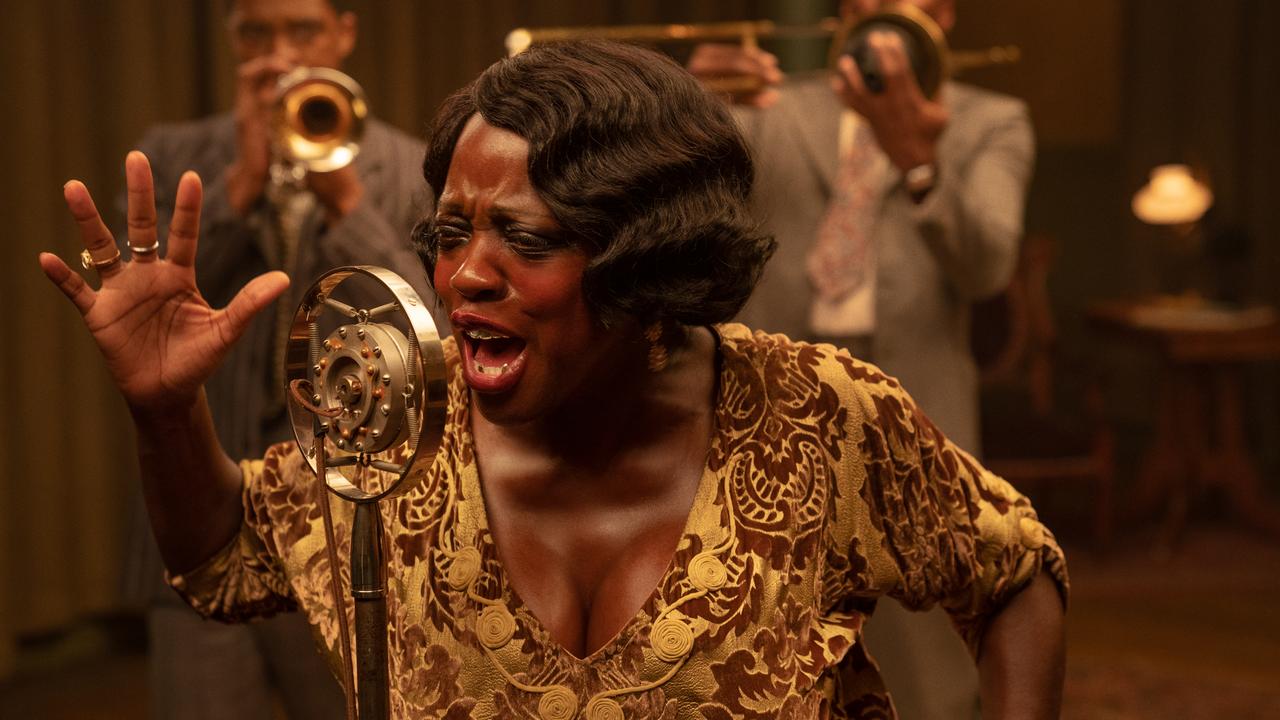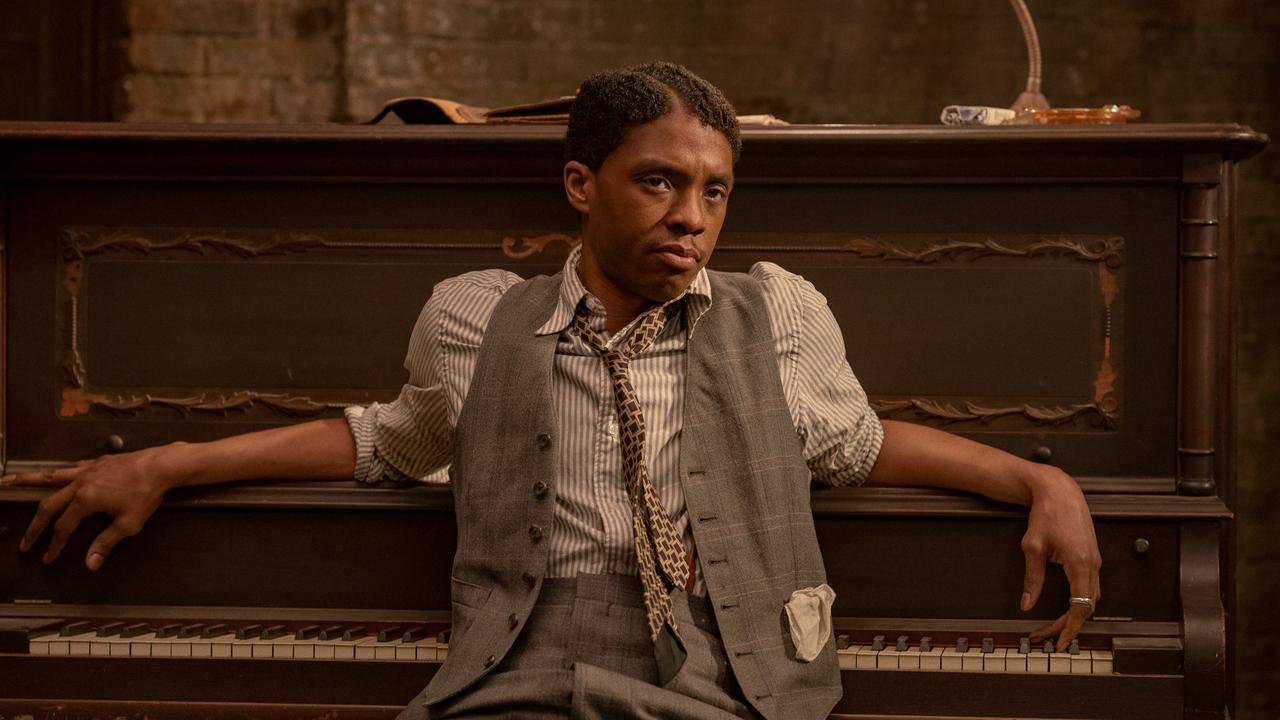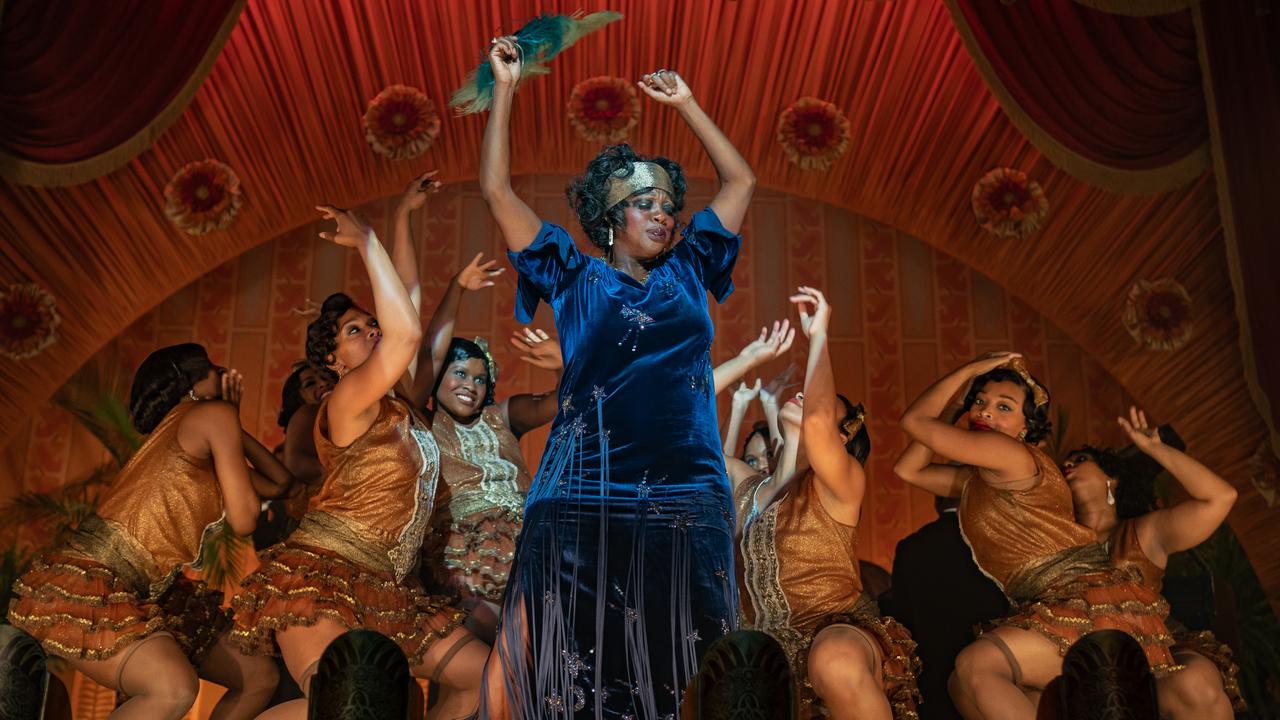Ma Rainey’s Black Bottom review: Fiery movie fuelled by powerful performances
Chadwick Boseman’s final onscreen role is earning him buzz for a posthumous Oscar.
If you were being unkind, you would call Ma Rainey a “difficult” star.
The jazz age singer is late to a recording session, demands her nephew plays a speaking part on the track and interrupts everything because she didn’t get her coca-cola.
But to write her off as “difficult” is to misunderstand the power plays at work in Ma Rainey’s Black Bottom, an adaptation of renowned playwright August Wilson’s work starring Viola Davis and Chadwick Boseman in his final screen role.
As the real-life Ma Rainey, known as “Mother of Blues”, Davis is electrifying, capturing the singer’s magnetic presence in front of adoring audiences. She understands her power – her power over her fans, the power of her talent, but also the contentiousness of her power in a social stratum in which a queer black woman has almost none.
Ma Rainey’s Black Bottom mostly takes place in Chicago, on a sweltering day in a recording studio in which Ma Rainey and her band of musicians is to record her song.
Arriving before her are session and gig musicians Toledo (Glynn Turman), Slow Drag (Michael Potts), Cutler (Colman Domingo) and fiery horn player Levee (Boseman).

RELATED: Five essential Chadwick Boseman films
The band are contented to go from job to job, but the younger, sartorially minded Levee has dreams of being part of the movement and of fronting his own band. Like everyone else in that studio, Levee is hoping to grab a bit of that finite amount of power from people very unwilling to share it.
When Ma Rainey arrives late with her nephew Sylvester (Dusan Brown) and lover Dussie Mae (Taylour Paige), her white manager Irvin (Jonny Coyne) and studio owner Strudyvant (Jeremy Shamos) are already prickly.
Time is money and they’re both think they’re going to make a lot of money from Ma Rainey’s voice. She knows this, asserting herself through “difficult” behaviour, born out of resentment in the certainty they only want her for her voice and not for her as a person.
Ma Rainey wants everyone, especially her white manager, to know who’s really in charge in the room (and it’s not even really her). But there is the sense that every small step she wins, such as whose arrangement of the song they’re going to record, doesn’t add up to an overall victory.

RELATED: The Third Day is an anxious watch
Ma Rainey’s Black Bottom may be a relatively self-contained story of what’s going in that studio, but the push-and-pull also plays into the wider social context of 1927 and the exploitation of African American labour by white northerners, as laid out in newsprint splashed across the screen, imploring black people to move north to be butlers and porters.
They might have the talent and the strength, but the fruits of their labour belong to someone else.
Wilson died in 2005, leaving behind an oeuvre of work that explores the African American experience through drama, another of which was adapted as Fences in 2017, winning Davis an Oscar for Best Supporting Actress.
Davis has eyes that’s always battle-ready, and she brings that intensity to the role as the viscerally frustrated but soulful Ma Rainey.


RELATED: Saved By the Bell’s Elizabeth Berkley Lauren on that Jessie and Slater scene
But everyone’s attention is going to be on Boseman. As the Black Panther star’s final screen role before his death from colon cancer earlier this year, there is special resonance in his performance of a character whose fate is tied to the circumstances of his birth.
It’s a powerful performance that reverberates with pride, pain and thwarted ambition. There is a tragedy to Levee and watching Boseman infuse that aching into this character is visceral.
Where Ma Rainey’s Black Bottom doesn’t quite pull it off, in the same way that Fences also didn’t, is that it doesn’t shake off the staginess of Wilson’s source material. Director George C. Wolfe primarily works in theatre and he doesn’t have the cinematic sensibility to inject the dynamism that really lifts it into the different medium.
But, it still looks great in that it is beautifully lit by cinematographer Tobias A. Schliessler while Ruben Santiago-Hudson’s screenplay retains so much of the rhythm and soul of Wilson’s dialogue.
And with those performances, from not just Davis and Boseman but also the likes of Domingo, Ma Rainey’s Black Bottom has a fire that can’t be repressed.
Rating: 3.5/5
Ma Rainey’s Black Bottom is available to stream on Netflix from Friday, December 18 at 7pm AEDT
Share your movies and TV obsessions | @wenleima




